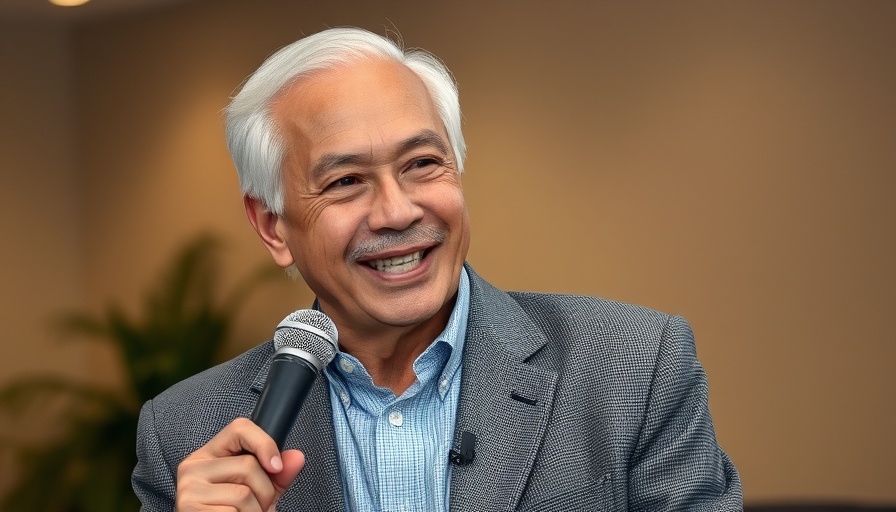
The Gospel According to Bart Ehrman: Understanding Misalignment Between Islam and Christianity
The recent discussion titled "Why Muslims Trust Bart Ehrman More Than Allah or Muhammad" raises important questions about the credibility of religious texts and the perspectives held by followers of different faiths, particularly in the context of Christianity and Islam. In this conversation, prominent figures dissect the contents of Ehrman’s scholarly work, especially focusing on the textual criticisms of the New Testament and how those discussions intersect with Islamic beliefs regarding the divine scriptures.
In 'Why Muslims Trust Bart Ehrman More Than Allah or Muhammad’, the discussion dives into how the faith intersects with critical scholarship, leading to deeper insights into religious beliefs.
The Clash of Beliefs: A Historical Perspective
The ongoing dialogue around how Muslims perceive the works of Bart Ehrman juxtaposes the evolution of biblical texts with Islamic doctrine, creating a fascinating historical narrative. Ehrman’s assertion that the New Testament comprises several interpretations from various authors posits a crucial challenge for Muslims who traditionally believe in the preservation of divine texts.
In the Islamic faith, the Quran is revered as the literal word of Allah, delivered without alteration. However, as the discussion unfolded, it became clear that this belief stands in stark contrast to how Christians view the origins of their scriptures, which were compiled over centuries, leading to differing interpretations and understandings.
Understanding the Islamic Dilemma
This dialogue dives deep into what has been termed the Islamic dilemma, wherein adherents of Islam are forced to reconcile their faith with the tangible criticisms stemming from respected sociologists and historians like Ehrman. While Muslims are encouraged to respect their foundational texts, questions arise when examining how these texts stack up against historical scrutiny.
For instance, as raised during the conversation, the query of whether God would allow a complete loss of the original message of the Torah and the Gospel remains a pivotal point of concern for many thinkers. The text of the Quran explicitly encourages believers to turn to the Torah and the Gospel for guidance, yet mainstream Islamic thought posits that these texts have been corrupted.
The Appeal of Critical Scholarship
The discussion reflects a growing trend among some Muslims who seek refuge in Ehrman’s narratives as a means to construct arguments against Christianity. By emphasizing Ehrman’s critiques, these affiliated individuals again inadvertently distort the very foundations of their Islamic faith and simultaneously elevate a secular scholar as a source of authority above their divine teachings.
This shift signals a significant departure from classical Islamic thought wherein the words of Allah and the teachings of the Prophet Muhammad received sole precedence. Despite the critical responses from the Islamic community to Ehrman's works, an essential examination of how Islamic theology interacts with historical truths is a must for anyone earnestly exploring their faith.
The Role of Faith and Reason
The relationship between faith and reason stands central to this discussion. Those grappling with the claims made by Ehrman—and indeed, the broader interplay between Islam and Christianity—find themselves at the crossroads of tradition and modern scholarship.
For many believers, the comfort of well-established traditions can often conflict with a more rational inquiry. This debacle outlines the necessity for open-mindedness within one's faith, where the exploration of historical and textual criticism can enrich rather than degrade belief systems.
Action Items for Engaged Believers
Whether you claim to belong to the Muslim community, the Christian faith, or any other spiritual belief, it’s essential to engage critically with the sources foundational to your faith. Here are a few actionable insights:
- Read Widely: Familiarize yourself with scholarly perspectives across different beliefs to construct a more comprehensive understanding of the religious tapestry.
- Engage in Dialogues: Participate in conversations that challenge your perspective while respecting differing beliefs.
- Ground Your Beliefs: Study your sacred texts to understand their historical context and available commentaries, forging a deeper connection to your faith.
- Balance Faith with Scholarship: Never shy away from examining criticisms of your faith. Engage earnestly with questions to strengthen your beliefs further.
- Keep an Open Mind: Awareness of biases and preconceptions can help navigate complex theological discussions.
This dialogue centered around Ehrman’s works sheds light on the diverse landscapes of religious thought and the implications they hold for various faith communities.
In conclusion, the relationship between faith, tradition, and the evolving understanding of scripture invites believers to explore their beliefs not just with loyalty but also with intellectual vigor. Isolating oneself from critical perspectives may offer temporary refuge, but engaging head-on with scholarly critiques ultimately leads to a more robust faith built upon a foundation of understanding.
 Add Row
Add Row  Add
Add 








 Add Row
Add Row  Add
Add 

Write A Comment